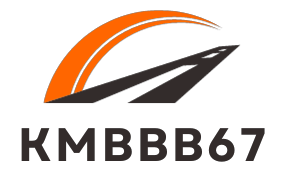KEY ELEMENTS FOR CONTENT MARKETINGSTRATEGY
Content marketing is a strategy of creating and sharing valuable, relevant and consistent content to
attract and retain a clearly defined target audience. The goal of content marketing is not only to capture
the attention of potential customers, but also to gain their trust and build a long-term relationship.
Through blogs, videos, social media posts, newsletters and other forms of content, content marketing
offers solutions to the target audience’s problems while positioning the brand or company as an authority
in its field.
However, content marketing is more than just producing and sharing content. It requires a strategic
approach, focused on understanding the target audience, their needs and how to engage them with the
brand or company. It is also about measuring the effectiveness of the content and adapting it for
maximum impact.
Httpmarketing Qualified content marketeer
Location Targeting Cities and regions in the Netherlands: Amsterdam Noord-
Holland, Rotterdam Zuid-Holland, Eindhoven Noord-Brabant, Groningen, Utrecht,
Almere Flevoland, Drenthe Assen, Zwolle Overijssel, Arnhem Gelderland,
Leeuwarden Friesland, Maastricht Limburg, Middelburg Zeeland.
Storytelling
An important aspect of content marketing is storytelling. People are programmed to want to hear stories
and through good stories, a brand or company can make an emotional connection with its target
audience. This can lead to better brand awareness, loyalty and sales.
Another important factor in content marketing is the use of visual elements. Good visuals can grab
attention and help convey complex information in a simple way. This can range from images and
infographics to videos and animations.
Visual elements
Besides storytelling and visual elements, it is also essential to provide relevant and valuable content to
the target audience. Content should not only be interesting, but also useful and actionable for the reader.
This could include content that is educational, inspiring or entertaining.
Search Engine Optimization
Another important aspect of content marketing is the use of SEO (Search Engine Optimization) strategies
to ensure that the content is found by the target audience through search engines such as Google. By
including relevant keywords in the content and optimising titles, meta descriptions and links, the visibility
of the content can be increased.
A strong content marketing strategy is built on several key elements to ensure it resonates with your
audience and achieves your business goals. Here are the most important aspects:
- Clear Goals and Objectives: Define what you want to achieve with your content marketing—brand
awareness, lead generation, customer retention, or thought leadership. - Understanding Your Audience: Develop detailed buyer personas to understand your audience’s
needs, pain points, and preferences. This ensures your content is relevant and valuable. - Content Plan and Calendar: Create a content plan that outlines the types of content (blogs,
videos, social media posts, etc.), topics, and publishing schedule to maintain consistency. - Value-Driven Content: Focus on creating content that educates, entertains, or solves problems for
your audience. Avoid overly promotional content. - SEO Optimization: Use keyword research to optimize your content for search engines, ensuring it
reaches the right audience organically. - Diverse Content Formats: Experiment with different formats like blogs, videos, infographics,
podcasts, and webinars to cater to various audience preferences. - Distribution Strategy: Plan how and where you’ll share your content—social media, email
newsletters, partnerships, or paid ads—to maximize reach. - Engagement and Interaction: Encourage audience interaction through comments, shares, and
discussions to build a community around your brand. - Analytics and Measurement: Track key performance indicators (KPIs) like website traffic,
engagement rates, lead conversions, and ROI to assess the effectiveness of your strategy. - Adaptability: Stay flexible and ready to adjust your strategy based on performance data, audience
feedback, and market trends.
Absolutely! Here’s a list of diverse content formats to keep your audience engaged and cater to different
preferences:
Written Content
- Blog Posts: Informative, educational, or entertaining articles.
- Ebooks: In-depth guides or resources for lead generation.
- Case Studies: Success stories showcasing your product/service impact.
- Whitepapers: Research-driven, authoritative reports.
- Newsletters: Regular updates and curated content for subscribers.
- How-To Guides: Step-by-step instructions on solving specific problems.
- Listicles: Easy-to-digest, numbered lists of tips or ideas.
Visual Content - Infographics: Data or processes visualized in an engaging way.
- Slide Decks: Shareable presentations for platforms like LinkedIn or SlideShare.
- Memes: Fun, relatable visuals to connect with your audience.
- Illustrations: Custom graphics to enhance storytelling.
- Photo Galleries: Behind-the-scenes or event highlights.
Video Content - Explainer Videos: Short videos breaking down complex topics.
- Tutorials: Step-by-step video guides.
- Live Streams: Real-time Q&A sessions, product launches, or events.
- Webinars: Educational sessions with live interaction.
- Customer Testimonials: Video reviews or success stories.
- Behind-the-Scenes: Showcasing your team, processes, or culture.
Interactive Content
- Quizzes: Fun, engaging ways to educate or entertain.
- Polls/Surveys: Gather audience opinions or feedback.
- Calculators: Tools to help users solve specific problems (e.g., ROI calculators).
- Interactive Infographics: Clickable, dynamic visuals.
Audio Content - Podcasts: Discussions, interviews, or storytelling in audio format.
- Audio Blogs: Blog posts converted into audio for on-the-go consumption.
User-Generated Content - Customer Reviews: Highlighting user feedback.
- Social Media Challenges: Encourage users to create content around a theme.
- Testimonials: Written or video endorsements from customers.
Experiential Content - Virtual Events: Online conferences or meetups.
- Augmented Reality (AR): Interactive AR experiences (e.g., virtual try-ons).
- Gamification: Games or challenges tied to your brand.
Other Formats - Checklists: Simple, actionable lists for specific tasks.
- Templates: Ready-to-use resources for your audience.
- FAQs: Addressing common questions in a structured format.
- Press Releases: Announcements for media and stakeholders.
Google safe link building service
Link building packages no cure no pay in Almere, Almere Stad, Almere Buiten, Almere Haven, Lelystad,
Zeewolde, Dronten, Urk, Marknesse, Emmeloord, Biddinghuizen.
Copyright Httpmarketing SEO specialisten ( 2004-2025 ) / Author: Mathé Hoogeboom
